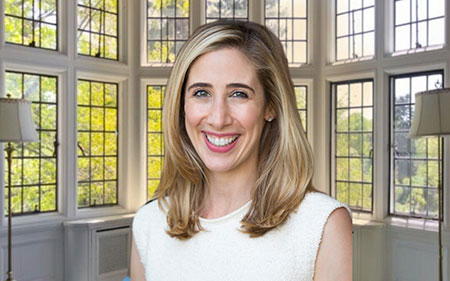Welcome to our inaugural issue of the MSON Newsletter! Each issue will share developments in the network, highlight excellence across our program, and spotlight our talented students and teachers. This issue features two of those students, one of our new courses, and a Q&A with a key program administrator.
I’m pleased to share some of what’s happened this fall:
- We are enormously proud of our interdisciplinary, project-based computer science course, “Explorations in Computer Science,” which our Think Tank on Computational Thinking developed last year. We believe it is breaking new ground in computer science instruction and hope it may be a model to other schools. (See our “Course Spotlight” below.)
- We have continued a collaborative professional development initiative with Stanford Online High School and the Bay Area BlendEd Consortium, called BOLT Summit (Blended Online Learning and Teaching). The fall offerings are open to all members of our school communities (regardless of their involvement in MSON).
- MSON has expanded into a co-curricular offerings, this year with a student-led Investment Club.
- We were pleased to welcome Geoff Wagg of Waynflete School and Kristi Gibbs of Browell Talbot to the MSON Steering Committee this summer and are grateful for their leadership.
Additionally, MSON has a new business model! After nearly a year of thoughtful and strategic work, the Steering Committee blessed an adjustment that will allow us to meet the needs of all member schools regardless of their enrollment in the program. We have already seen excitement from Malone Schools who may consider joining MSON.
This time of year is my favorite, as we begin to put together our 2020-21 Course Catalog. The Call for Proposals has just been distributed; we invite interested teachers to submit proposals by December 19th for new courses that will expand the curricula of each of our schools and push our students intellectually. Specifically, we are interested in proposals for economics, business, and finance; computer science; languages (Japanese, German, etc.); and advanced math and science.
As Thanksgiving is upon us, I’m grateful to the Heads, Academic Liaisons, Technical Liaisons, teachers, and students at our member schools, and to our leadership team. A special thank you to Jeff Edmonds at University School of Nashville, Kelly Wilson at Severn School, and our Registrar Stephanie Zobay for their dedication in envisioning and creating this newsletter.
We want to hear your voice! Please send submission ideas for this newsletter my way. We would like to highlight more of our courses, students, and teachers and are also open to articles on a range of topics. Is there an innovation in your teaching you’d like to share? An issue on your campus you’d like to explore? A student we should highlight?
Finally, no one sums up the great work we’re doing better than our students. Our fall course survey oozed with enthusiasm about teachers and courses. Wrote one student:
“[I love] having the ability to discuss with a student that I don’t know and who comes from a different world that I do. It brings more perspectives on the material we cover in a way that a traditional classroom experience could not.”
Writes another, “I learned so much from this class that allowed me to discover about myself, my identity, and about other cultures and ideologies. This is a great class and I HOPE IT NEVER ENDS.”
We have succeeded if we are raising the level of civic discourse across geographical boundaries and helping students explore their identities and those of their peers. Thank you for your role in this endeavor.
Happy Thanksgiving!
Claire
Food for Thought
A “grab-bag” of articles I’m reading this week:
There has been much made of this Harvard study on active learning vs. lectures and students’ perceptions of those learning modes:
“Lessons in Learning,” The Harvard Gazette.
“Do Students Really Learn Nothing From a Lecture?” The Chronicle of Higher Education
Tips on supporting students through current events (especially relevant to MSON given the demands of our geographic diversity):
“Five Steps to Addressing Impeachment in Classroom Discussions,” EducationDive
One of the most popular new social media platforms, TikTok, has made its way into schools:
“High Schools to TikTok: We’re Catching Feelings,” The New York Times.
A thoughtful investigation of “deeper learning” across several schools in America:
In Search of Deeper Learning: The Quest to Remake the American High School, Jal Mehta and Sarah Fine
A vivid study on inclusion—relevant to independent schools as much as higher ed.
The Privileged Poor: How Elite Colleges Are Failing Disadvantaged Students, Anthony Abraham Jack

